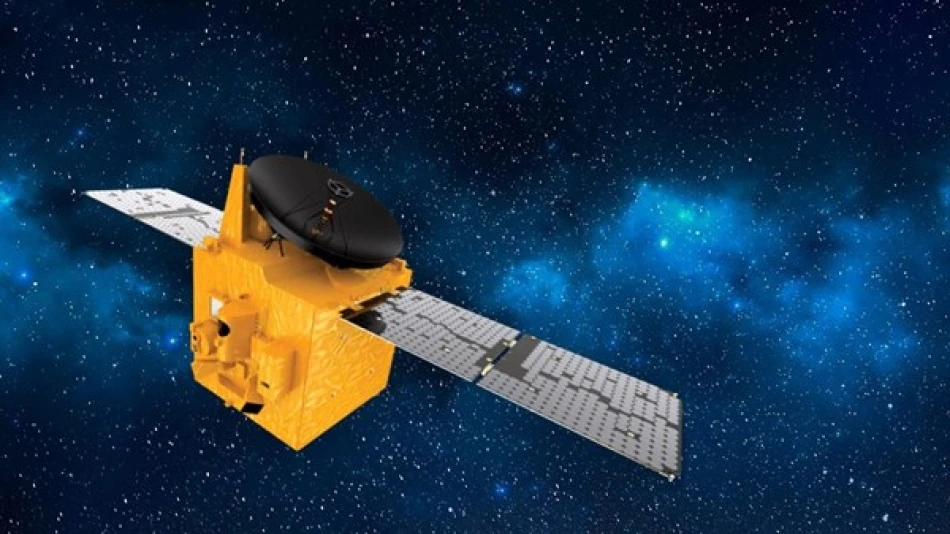
UAE Space Agency Showcases Vision for Global Space Collaboration at Expo Osaka
UAE Space Agency Positions Emirates as Global Bridge at Osaka Expo 2025
The UAE Space Agency leveraged its presence at Osaka Expo 2025 to advance its vision of becoming a central hub in the global space economy, hosting strategic dialogue sessions that addressed critical barriers to space commercialization and international partnerships. The September 11-12 sessions signal the Emirates' growing ambition to transform from a regional space player into a global mediator between national space programs and international initiatives.
Strategic Focus on Space Economy Barriers
The dialogue sessions tackled fundamental challenges facing the space sector, including economic barriers that have historically limited access to space technologies and markets. This focus aligns with global trends toward space democratization, where nations are seeking to reduce costs and increase accessibility to space-based services.
The discussions also covered the Artemis Accords, NASA's international framework for lunar exploration cooperation. The UAE's participation in these conversations reinforces its position as one of the key non-Western signatories to the accords, alongside traditional space powers.
UAE-Japan Industrial Partnership Takes Center Stage
The emphasis on UAE-Japan industrial partnerships represents a strategic pivot toward Asia's advanced manufacturing capabilities. Japan's expertise in precision engineering and robotics complements the UAE's growing space infrastructure investments, potentially creating a new axis for space technology development outside the traditional US-Europe corridor.
This partnership model mirrors successful collaborations between Singapore and Japan in advanced manufacturing, suggesting the UAE is following proven pathways to technology transfer and industrial development.
Deep Space Economy Vision
Dr. Ahmed Balhoul Al Falasi, UAE Minister of Sports and Chairman of the UAE Space Agency, framed the Emirates' participation as part of building a "sustainable space economy" that serves broader development goals. This language echoes similar positioning by Luxembourg and the UK, nations that have successfully carved out specialized niches in the global space value chain.
The minister's emphasis on the UAE serving as a "global bridge" between national ambitions and international initiatives suggests a deliberate strategy to position the country as a neutral facilitator in an increasingly fragmented global space landscape.
Market Implications and Investor Perspective
For space industry investors, the UAE's approach represents a potential hedge against geopolitical tensions affecting US-China and US-Russia space cooperation. The Emirates' neutral positioning and strong financial backing make it an attractive partner for companies seeking stable, long-term space infrastructure investments.
The focus on economic barriers also indicates potential policy changes that could open new markets for private space companies, particularly in satellite services and space tourism sectors where the UAE has shown growing interest.
Regional Competition and Global Positioning
The UAE's space diplomacy efforts at Osaka come as regional competitors like Saudi Arabia accelerate their own space programs. By positioning itself as a knowledge-sharing platform rather than purely a national competitor, the UAE appears to be pursuing a Singapore-style strategy of becoming indispensable to multiple parties rather than dominant in any single area.
This approach could prove particularly valuable as space activities become increasingly commercialized and nations seek neutral ground for international cooperation projects that transcend traditional alliance structures.
Most Viewed News

 Layla Al Mansoori
Layla Al Mansoori






